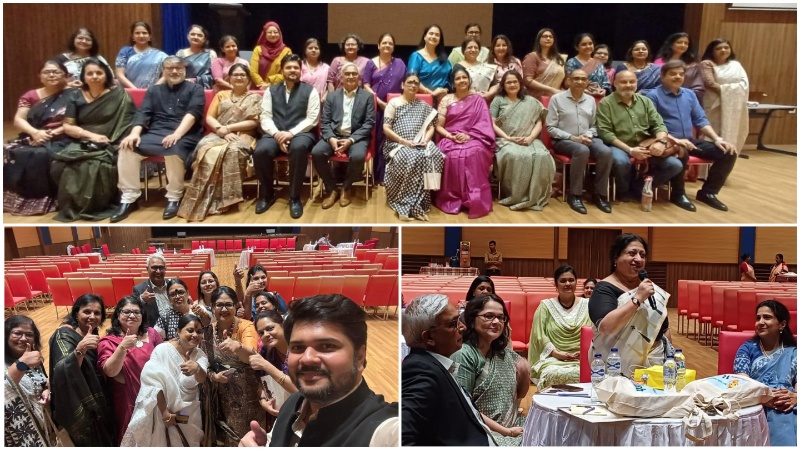India: In Kolkata, educators and community leaders unite to build resilience in students

Kolkata, West Bengal/08 November 2024: Educators have a unique opportunity to guide students through today’s many challenges—peer pressure, mental health struggles, and risky behaviors that can influence young lives. By fostering resilience and supporting positive choices, teachers play a key role in shaping a safe and supportive environment for students.
Recently in Kolkata, 25 education stakeholders gathered for a RiseUp4Peace strategic orientation dialogue led by Mr. Samarth Pathak, UNODC Communications Officer for South Asia and Dr. Satya Bhushan, Associate Professor, NCERT. Hosted by Indus Valley World School, BD Memorial School, and the Funlish Language School, the dialogue explored the pressing need to help students navigate emerging risks in today’s world.
Educators and NGO representatives shared their insights on various classroom realities, including peer pressure, mental health concerns, aggression, and addiction dangers. These issues, often heightened by social media and academic stress, create vulnerabilities that can derail students from a healthy path. "Our responsibility as educators extends beyond academics," said Ms. Suman Sood, Principal of BD Memorial School. "We need to provide socio-emotional support that builds a foundation for resilience and self-confidence, empowering students to make positive choices."
As part of the discussion, stakeholders highlighted the National Education Policy (NEP) 2020, which emphasizes a holistic approach to learning that includes socio-emotional development. Educators described practices aligned with NEP, such as periodic workshops, open conversations on mental health, and the integration of arts, sports, and technology to help students express and manage their emotions. "Using sports and arts can give students an outlet to express their concerns in a healthy way," said Ms. Swati Bakshi, founder, Funlish Language School. "It’s crucial to normalize these conversations, so students feel safe seeking help."
The dialogue underscored the essential role of family support in building resilience, with NGO representatives emphasizing that collaboration between families, schools, and the community strengthens the impact of these efforts. "When families engage with schools and understand the importance of these discussions, it creates a safety net for students," noted an NGO representative.
According to Mr. Samarth Pathak, empowering students to make healthy choices is a collaborative mission. "Education today must go beyond the classroom, reaching into homes and communities. When we work together, we create an environment where students can confidently navigate pressures and avoid risky behaviors."
Reflecting on the outcome, participants agreed that while this was an encouraging start, the roadmap to creating resilience in students requires continued commitment. "We need a collective approach, where educators, parents, and NGOs work hand-in-hand to sustain these efforts," noted a communications representative involved in the dialogue.
The RiseUp4Peace dialogue in Kolkata set the stage for an ongoing journey, building resilience within students, families, and communities alike. This is a roadmap that needs continued dedication—and everyone has a role to play.
Join the RiseUp4Peace initiative: t.ly/lh9T7
This activity contributes to SDG 4, SDG5, SDG 16 and SDG 17: https://sdg-tracker.org/